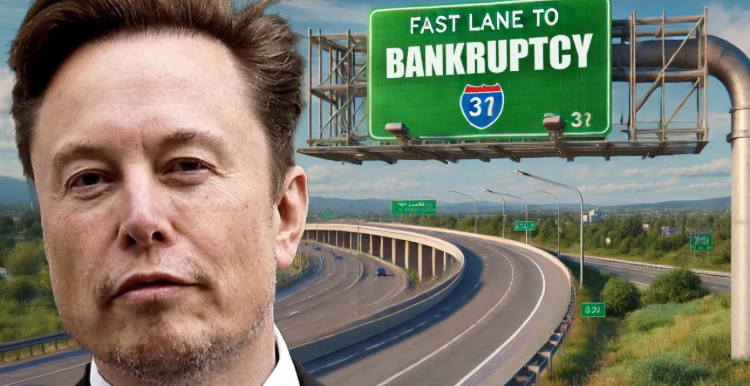In recent times, Elon Musk, the owner of X and the CEO and product architect at Tesla, Inc., has been voicing his concerns about inflation.
This discussion became especially prominent after he interviewed former U.S. President Donald Trump. Just two days ago, Musk took to X, declaring that the United States is “in the fast lane to bankruptcy” after sharing a post regarding the national deficit.
This past week, Elon Musk has reiterated his stance that rampant government spending is the key driver behind the severe inflation that has troubled the nation. During an X Spaces show where Musk interviewed former President Donald Trump, he expressed his concern, telling Trump that he sees government overspending as a major problem. Musk also emphasized that “a lot of people just don’t understand where inflation comes from,” underlining the widespread lack of awareness on the issue.
At current rates of government spending, America is in the fast lane to bankruptcy. Government overspending is what causes inflation.
Musk made this comment in reply to a post on X featuring the Budget of the United States Government for Fiscal Year 2025, which reveals plans to add another $16 trillion to the national deficit by 2035. The X account “Being Libertarian” chimed in, responding to Musk’s remark with, “A century of Democrats and Republicans tag teaming the destruction of America. Seems impossible to fix at this point.”
The owner of X isn’t alone in his concerns about the U.S. economy. In fact, several indicators suggest that the nation could be heading toward significant financial trouble. A worrying mix of persistently high inflation and soaring national debt paints a grim picture. In 2023, the government spent an average of $12.65 billion per week just on interest for the national debt. Looking ahead, the Congressional Budget Office (CBO) estimates that these interest costs will climb to $17.15 billion per week in 2024.
The U.S. economy has also been grappling with sluggish gross domestic product (GDP) growth, with various scenarios potentially exacerbating the situation. These include liquidity challenges, the risk of breaching debt covenants, rising geopolitical tensions, and, most concerning, the potential loss of the U.S. dollar’s status as the world’s primary reserve currency. Such an event could occur if foreign governments and central banks begin to rapidly shed their dollar reserves, posing a severe threat to U.S. financial stability.
As Elon Musk’s concerns reverberate through the economic discourse, they highlight a broader unease about the trajectory of U.S. fiscal policy. The intersection of unchecked government spending, mounting debt, and inflationary pressures suggests that the nation could be approaching a critical financial juncture. This scenario may force policymakers and citizens alike to confront the stark realities of economic mismanagement.

